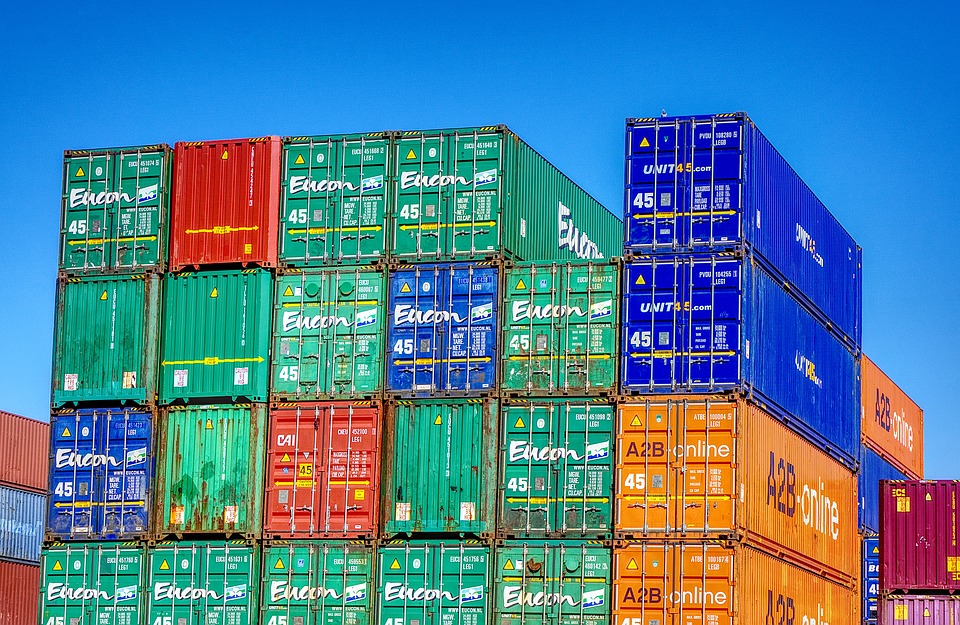 CLOUD
CLOUD
 CLOUD
CLOUD
 CLOUD
CLOUD
Following in the footsteps of public cloud rivals Google LLC and Microsoft Corp. for once, Amazon Web Services Inc. on Wednesday finally announced it’s supporting the open-source Kubernetes container orchestration engine.
The company also introduced a new managed service called Fargate for running containers without worrying about the underlying servers or clusters.
With the announcements, made during Amazon’s AWS re:Invent conference in Las Vegas, the company is acknowledging the enormous popularity of software container technology among developers. Software containers are lightweight execution environments for applications that are more portable than virtual machines, allowing developers to abstract the hardware away from their apps to easily run them on any platform.
As for Kubernetes, this is a piece of open-source software first developed by Google that’s used to manage the complexity of building containerized applications. It works by orchestrating certain tasks such as load balancing.
Amazon said that its new Fargate service goes further than this by letting users define how much memory and compute power their applications require, without having to worry about the underlying servers. Everything is managed by Amazon, so developers only have to think about their code and not the infrastructure their apps sit on.
“To put it simply, Fargate is like EC2 but instead of giving you a virtual machine you get a container,” Randall Hunt, senior technical evangelist at AWS, said in a blog post announcing the service. “It’s a technology that allows you to use containers as a fundamental compute primitive without having to manage the underlying instances.”
Meanwhile, the new Amazon Elastic Container Service for Kubernetes, called Amazon EKS for short, is billed as “a fully managed service that makes it easy for you to use Kubernetes on AWS without having to be an expert in managing Kubernetes clusters.”
Amazon’s support for Kubernetes has been expected for some time. Previously, Amazon had pushed its own container orchestration tools offered via its Elastic Container Service, but AWS Chief Executive Andy Jassy allowed in his keynote speech Wednesday morning that Kubernetes has “resonance,” a grudging way of conceding it has become the most popular option for developers.
Public cloud rivals Google and Microsoft both already support the container orchestration software. Google does so with its Kubernetes Engine product, while Microsoft recently announced its Azure Kubernetes Service that does more or less the same thing.
Despite being late to the party, Amazon is no stranger to Kubernetes, with more than 100,000 active container clusters running on its initial container offering, the Amazon Elastic Container Service that was launched back in 2014, which have been used to spin up millions of containers, the company said. With Amazon EKS, however, the company is building on this original service, providing support for these deployments, and will manage every aspect of container orchestration for its users.
The company’s decision to support Kubernetes was likely a very tough choice for Amazon, said Sirish Raghuram, the chief executive officer of Platform9 Systems Inc., a startup that provides managed hybrid cloud and container orchestration services. He said in a blog post that Kubernetes could actually erode Amazon’s position as the public cloud leader.
“This has created a vexing conundrum for AWS: does it sit out the Kubernetes phenomenon, and risk losing workloads to other clouds and startups that preach the gospel?” Raghuram said. “Or, does it throw in the towel and support Kubernetes, knowing fully well this will mean supporting the very framework that threatens to commoditize AWS by leveling the playing field across clouds and, triggering a catastrophic race to the bottom?”
Amazon said its EKS service is available now in public preview. Fargate is generally available for the Elastic Container Service now in Amazon’s US East region, while Fargate for EKS is set to be launched next year.
With reporting from Robert Hof
Support our open free content by sharing and engaging with our content and community.
Where Technology Leaders Connect, Share Intelligence & Create Opportunities
SiliconANGLE Media is a recognized leader in digital media innovation serving innovative audiences and brands, bringing together cutting-edge technology, influential content, strategic insights and real-time audience engagement. As the parent company of SiliconANGLE, theCUBE Network, theCUBE Research, CUBE365, theCUBE AI and theCUBE SuperStudios — such as those established in Silicon Valley and the New York Stock Exchange (NYSE) — SiliconANGLE Media operates at the intersection of media, technology, and AI. .
Founded by tech visionaries John Furrier and Dave Vellante, SiliconANGLE Media has built a powerful ecosystem of industry-leading digital media brands, with a reach of 15+ million elite tech professionals. The company’s new, proprietary theCUBE AI Video cloud is breaking ground in audience interaction, leveraging theCUBEai.com neural network to help technology companies make data-driven decisions and stay at the forefront of industry conversations.